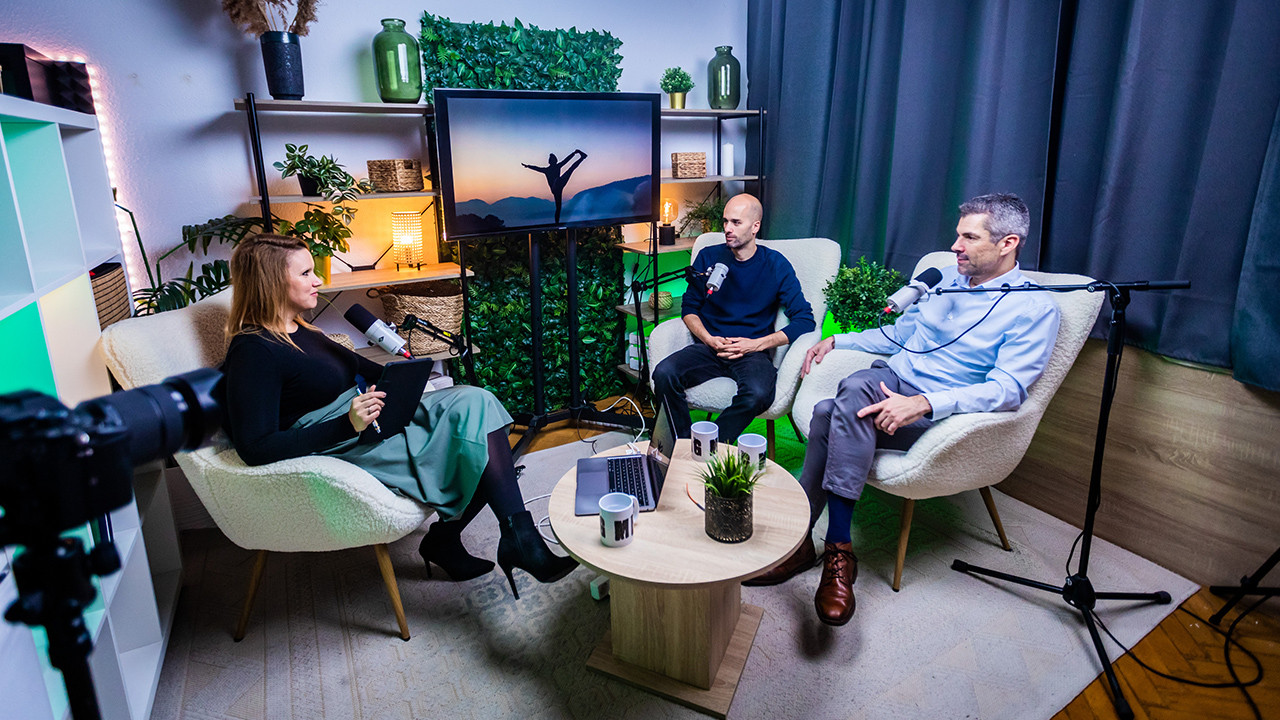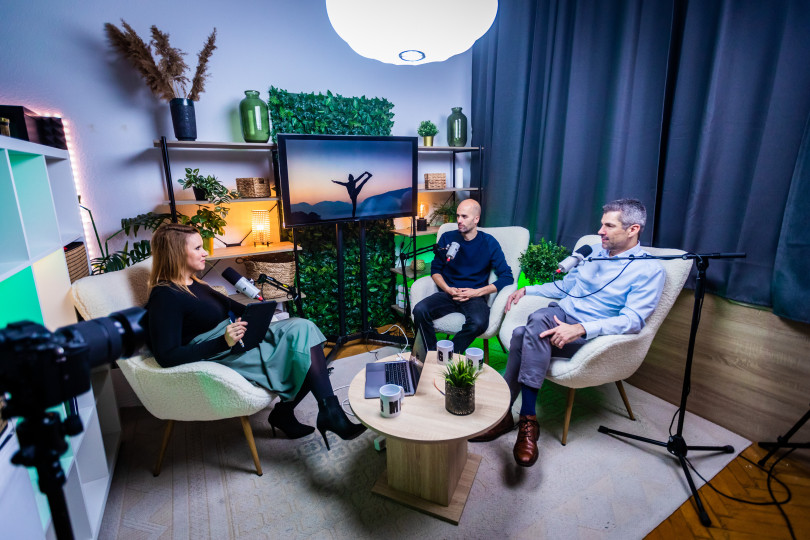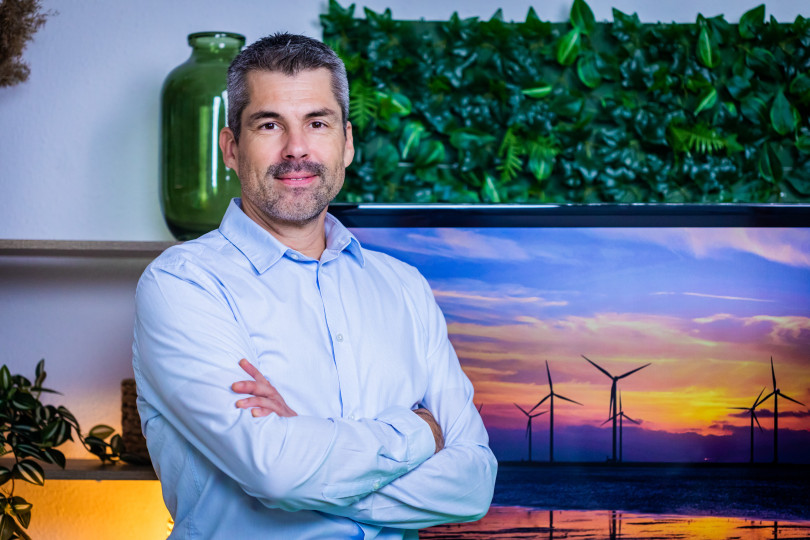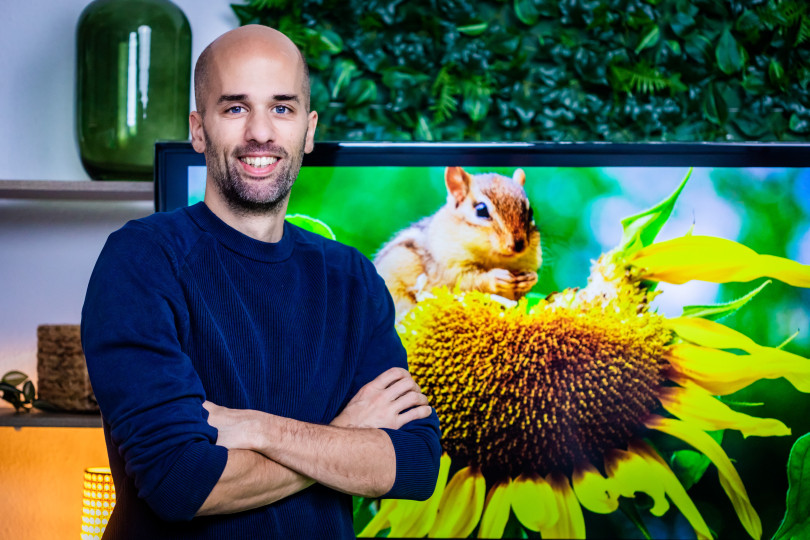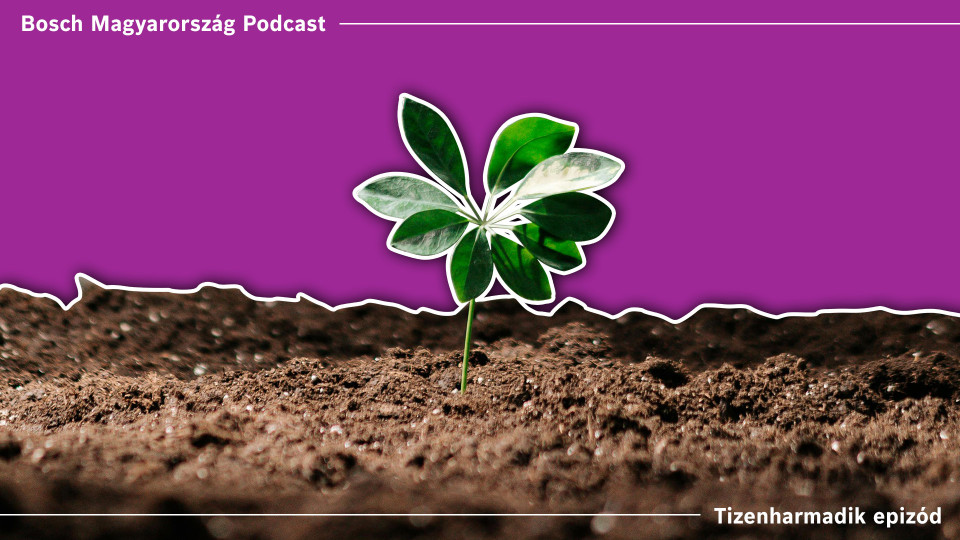Preserving our environment and sustainability is the most pressing and complex issue of our time, and one on which we have much to learn. It is particularly topical today. But how big is the problem? Is there anything we can do against the processes of environmental degradation? What is the role of companies in this regard? And what are the ways in which innovative technologies can help? Here are some thought-provoking facts in the latest Bosch Hungary Podcast, which offers an insight into the most hidden dimensions of sustainability.
There are more and more worrying signs, and it is now clear that climate change and the extinction of species caused by humanity’s way of life are happening before our eyes and at an unprecedented rate. In the most recent episode of the Bosch Hungary Podcast, Miklós Antal, engineering physicist, head of the MTA-ELTE Lendület New Vision Research Group and lecturer in human ecology, Miklós Szalóczy, engineer-manager, leader of the Bosch Group's Global Energy Efficiency Working Team and Edit Tóth, digital media manager of the Bosch Group in Hungary discusses the underlying causes and the urgent action that needs to be taken by companies and individuals alike.
Not since the dinosaurs have so many species become extinct
First of all, it is worth clarifying what poses the greatest threat to our future. The most serious environmental problem is clearly the loss of species, as biodiversity is the basis of the Earth’s defenses, we can learn from the podcast. The sixth wave of extinction is now underway, the last of its kind occurred 65 million years ago when dinosaurs disappeared from our planet. Today’s climate change, with carbon dioxide emissions as the main cause, has a role to play in all of this.
This may sound familiar, but we don’t necessarily realize that carbon dioxide can change the climate in just a few decades, radically transforming the living conditions and the agricultural production opportunities even in the lifetime of people alive today.
According to Miklós Antal, the “milder” case is that the already felt effects of desertification will become even more pronounced in the future, making certain parts of the world uninhabitable, bringing with it migration and increasing the chances of further geopolitical conflicts. But there is also the possibility that a weakening North Atlantic Current will radically change the climate of Western Europe, rendering vast building stock and transport systems in parts of Europe unusable in a few blinks of an eye, the expert says, painting a not so rosy picture.
A can of pears around the world
Let’s also take a look at our daily habits that have a crucial impact on the fate of our planet. It’s not just what we buy, how we travel, how we heat our homes, how much waste we produce, but also what we eat. A thought-provoking example that Miklós Szalóczy shared with the listeners is the case of the canned pears that have travelled all over the world – and even surfaced on social media. These can be bought in North America, but the raw material comes from Argentina, and they are packaged in Thailand, so each can travels twice around the ocean just to reach the consumers. How is this even possible? Because there is consumer demand, the expert points out in the fresh episode of the Bosch Hungary podcast.
Bosch: sustainability starts at the drawing board
So, the problem is really big: reducing environmental degradation and reaching sustainable growth requires urgent action. It is easy to understand that, in addition to the population, activities in the world of business, manufacturing and commerce – because of their magnitude and intensity – also contribute to environmental pollution but also offer opportunities to create a greener future. The expert in the Bosch podcast points to a very important and encouraging trend among economic operators: more and more companies are making serious sustainability commitments, thanks to legal obligations, customer expectations or voluntary commitments to strict targets. “At Bosch, sustainability starts at the drawing board,” Miklós Szalóczy points out the importance of long-term thinking. According to the expert, we can soon reach a point where sustainability will become the basis for the success and competitiveness of companies.
Self-sufficient factories: small hydrogen power plants could be the future
Bosch, for example, is improving the protection of the Earth’s resources and energy efficiency by, among many other measures, buying 99% green energy and producing its own renewable energy from small power plants at 110 of its more than 400 sites worldwide. One of the most exciting of these is at one of the company’s plants in Salzglitter, Germany, where a 5 MW solar panel system has been added to the gas-fired hydrogen production system to also produce green hydrogen from solar energy. This can be stored well and used in a variety of ways, for example in fuel cells, converted back into electricity for vehicles and production processes. “It is clear that energy storage is an important area of the green transition, where hydrogen is likely to be a key player,” Miklós Antal underlines in the podcast.
Bringing innovative companies and consumers together can save the future
Many people think that it is not worth making a difference at the individual level because “it doesn’t matter anyway”. But this is the wrong mindset: we need to rethink our core values and habits to live more sustainably. There are many ways in which we can help the environment, and there are an increasing number of innovative technologies that can help us do this: from ever more efficient electric cars to more energy-efficient public transport, to reducing the need to travel.
Bosch Hungary Podcast: technology in plain language
The Bosch Hungary Podcast deals with the most current issues in innovation and R&D, seeks to provide clear answers to the most pressing questions about the technology of the future with the help of expert guests. If you want to learn more about the latest questions on sustainability, you can listen to the answers and even watch them on Bosch Hungary’s podcast channels on YouTube, Spotify, Apple Podcasts, and Simplecast!
Zita Hella Varga
Phone: +36 70 667-6374
Bosch has been present in Hungary since 1898 with its products. After its re-establishment as a regional trading company in 1991, Bosch has grown into one of Hungary’s largest foreign industrial employers with currently eight subsidiaries. In fiscal 2023 it had total net sales of 2.207 billion forints and consolidated sales to third parties on the Hungarian market of 343 billion forints. The Bosch Group in Hungary employs more than 18,300 associates (as of December 31, 2023). In addition to its manufacturing, commercial and development business, Bosch has a network of sales and service operations that covers the entire country.
The Bosch Group is a leading global supplier of technology and services. It employs roughly 417,900 associates worldwide (as of December 31, 2024). According to preliminary figures, the company generated sales of 90.5 billion euros in 2024. Its operations are divided into four business sectors: Mobility, Industrial Technology, Consumer Goods, and Energy and Building Technology. With its business activities, the company aims to use technology to help shape universal trends such as automation, electrification, digitalization, connectivity, and an orientation to sustainability. In this context, Bosch’s broad diversification across regions and industries strengthens its innovativeness and robustness. Bosch uses its proven expertise in sensor technology, software, and services to offer customers cross-domain solutions from a single source. It also applies its expertise in connectivity and artificial intelligence in order to develop and manufacture user-friendly, sustainable products. With technology that is “Invented for life,” Bosch wants to help improve quality of life and conserve natural resources. The Bosch Group comprises Robert Bosch GmbH and its roughly 470 subsidiary and regional companies in over 60 countries. Including sales and service partners, Bosch’s global manufacturing, engineering, and sales network covers nearly every country in the world. Bosch’s innovative strength is key to the company’s further development. At 136 locations across the globe, Bosch employs some 86,900 associates in research and development, of which nearly 48,000 are software engineers.
Additional information is available online at www.bosch.hu, iot.boschblog.hu, www.bosch.com, www.iot.bosch.com, www.bosch-press.com, www.twitter.com/BoschPresse

